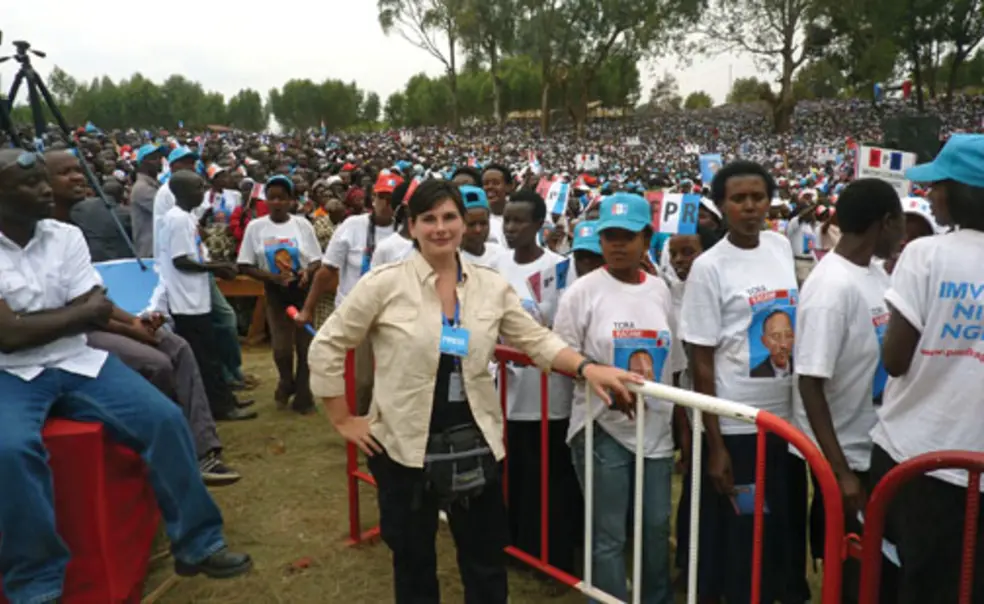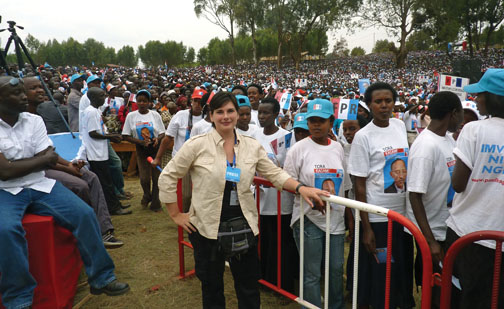In recent years shrinking budgets have forced many print and broadcast news organizations to close foreign news bureaus. At the same time, a new model is emerging — journalists working for nonprofit organizations. Instead of traditional corporate backers, the journalists’ work is funded by foundations and private donors.
Responding to the changing landscape, Kira Kay *03 created a New York-based nonprofit, the Bureau for International Reporting (BIR), about four years ago.
Kay and her partner, Jason Maloney, learned their trade as producers for ABC News, where they traveled the world to do in-depth journalism. “But as we saw budgets being cut and bureaus being cut, we really realized that the ability to do ... overseas reporting was getting smaller and smaller,” says Kay, who earned a master’s degree in public policy from the Woodrow Wilson School.
The BIR seeks to keep alive the quality of old-fashioned bureau-based reporting, where journalists spend time on the ground digging into a country and its issues. Their mission: Cover overlooked international affairs and regions to educate the American public and examine U.S. policy.
Typical pieces are eight to 10 minutes long and have aired on PBS, the cable channel HDNet, and at Time.com. BIR’s $250,000 annual budget comes from organizations such as the Ford Foundation, the Carnegie Corp., and the Compton Foundation.
Armed only with one camera, laptops to edit their footage, and a duffel bag and backpack, Kay and Maloney have covered the rising tensions in separatist enclaves in the nation of Georgia, examined the fragile stability in Haiti before the earthquake struck last January, and in August, prior to elections in Rwanda, filed a report that explored the changes in that country since the 1994 genocide.
In September they returned to Bosnia, where they had produced a story on the country’s “political paralysis” to film a story for PBS NewsHour pegged to national elections Oct. 3. They focused on young adults who have grown up in the postwar, largely segregated society. “They are pretty disenfranchised, given the increase in nationalist and ethnically divisive politicians that have taken power in recent years,” observes Kay. They found young activists who are trying to “reach across ethnic lines to create new parties.”
For its 2008 coverage of the impact of International Criminal Court warrants in Uganda, the BIR won the Robert F. Kennedy Memorial International Television Award.
Kay argues that the demise of large news budgets need not put a stop to in-depth international reporting. Thanks to technology and their two-person team, she says, “We cut our budget way down and still are able to stay in the field for a couple weeks.” She and Maloney handle everything from reporting, filming, and editing to seeking grants, writing checks, and performing the other mundane tasks of running a nonprofit organization.
“It will always be tough” to raise money, says Kay. But she feels as though the BIR was created at the right time. “There’s a real discussion about the future of journalism ... and nonprofit journalism being a real potential solution to the crisis,” she says.
ProPublica, a nonprofit news organization established in 2007, won a 2010 Pulitzer Prize for investigative reporting. That kind of recognition, she notes, might help people realize that nonprofits do real journalism. What remains to be seen, she says, is how their work will be disseminated — whether on TV or through new technologies like the iPad.













No responses yet